- About Us
- Columns
- Letters
- Cartoons
- The Udder Limits
- Archives
- Ezy Reading Archive
- 2024 Cud Archives
- 2023 Cud Archives
- 2022 Cud Archives
- 2021 Cud Archives
- 2020 Cud Archives
- 2015-2019
- 2010-2014
- 2004-2009
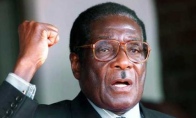 |
The Burgers Are Better: |
Prior to the Global Economic Crisis, Zimbabwe was regularly in the news. Partly because of its headline grabbing inflation figures, decaying economy, the power sharing talks between Robert Mugabe and Morgan Tsvangirai, more than the occasional human rights abuse, and its hamburgers.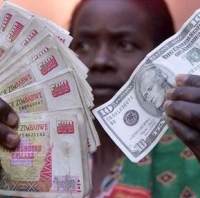 It was reported that to secure one of Zimbabwe’s sloppiest and finest would have set you back 15 million Zimbabwe dollars (equivalent to about AUD5) in January 2008. To borrow some fast food slang, the burgers are better at Hungry Jacks in Harare...
It was reported that to secure one of Zimbabwe’s sloppiest and finest would have set you back 15 million Zimbabwe dollars (equivalent to about AUD5) in January 2008. To borrow some fast food slang, the burgers are better at Hungry Jacks in Harare...
This essay is inspired by David Coltart’s ‘A decade of Suffering in Zimbabwe’ which calls for greater awareness of the humanitarian, social and economic conditions in Zimbabwe[i]. This, Part 1, summarises the problems facing Zimbabwe and the dilemma that the country poses to the rest of the world. Part 2 will plot the steady demise of Zimbabwe into crisis, describe how its Government got away with it, and provide some coverage of possible solutions to the crisis.
A decade of suffering
Zimbabwe has been in depression since the late 1990’s. It was once a vibrant economy with burgeoning agricultural, mining and tourism sectors. Since then a number of fundamental economic and social policy mistakes, including a poorly implemented agricultural land reform program, have transformed what was once one of Africa’s leading economies into one of the world’s worst. At the present time Zimbabwe simultaneously lays claim to the world’s highest inflation rate and lowest life expectancy. To quote the Reverend Desmond Tutu: “Zimbabwe, the country that used to be a bread basket has now become a basket case”. Outside of wartime, few other countries could claim a worse performing economy than Zimbabwe’s since 1998[ii].
The latest postcard from Harare (Wish you were here….) sends news of a cholera outbreak that at last estimate accounted for nearly 4,000 dead (80,000+ infected and many more at risk)[iii], economic hardship and ruin, and limited fresh water for the majority of the population.
Inflation officially reached 839 per cent month on month in June 2008; the official year on year figure for July 2008 was over 11 million per cent - a conservative independent estimate is 231 million per cent[iv]. These are figures not seen since the Weimar Republic in World War Two Germany when money presses were in operation 24/7 in an attempt to keep the wartime economy afloat.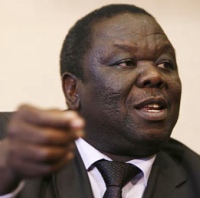 Less widely reported was that the Reserve Bank of Zimbabwe has just introduced the 1 trillion dollar note, which accounts for a paltry few hundred pounds at the black market exchange rate. The Reserve has lopped zeroes off the currency many times in the last year to keep pace with inflation.
Less widely reported was that the Reserve Bank of Zimbabwe has just introduced the 1 trillion dollar note, which accounts for a paltry few hundred pounds at the black market exchange rate. The Reserve has lopped zeroes off the currency many times in the last year to keep pace with inflation.
I have friends who have pulled out 50 billion Zimbabwe dollars at dinner and it wouldn’t even pay for their meal – people start counting money before the food is ordered in the hope that they are finished by the time the bill arrives at the end of the evening. The currency is less than worthless because of the burden associated with transporting large wads of cash for everyday transactions. According to Keynes[v]:
“There is no subtler, no surer means of overturning the existing basis of society than to debauch the currency. The process engages all the hidden forces of economic law on the side of destruction, and does it in a manner which not one man in a million is able to diagnose”.
At last official count, Zimbabwe’s population was estimated at just over 11 million, about half of Australia’s population (although this fails to take account of an estimated 3.4 million Zimbabweans that had fled abroad by mid 2007 – mainly into South Africa). However, Zimbabwe’s gross domestic product (GDP), at US$0.64 billion in CY 2007, was 0.08 per cent of Australia’s (approximately US$ 850 billion) in the same year. According to the UN, about 7 million of Zimbabwe’s people are in need of food aid and the unemployment rate currently stands at 94 per cent. 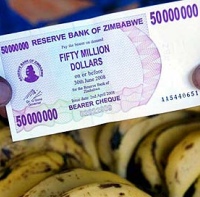
UN data also reveals that Sub-Saharan Africa has just over 10 per cent of the world’s population, but is home to more than 60 per cent of all people living with HIV—25.8 million. Over 2 million of these are in Zimbabwe (about 20 per cent of the population aged 15-49). Life expectancy at birth for males in Zimbabwe has dramatically declined since 1990 from 60 to 37, the lowest in the world, and is 34 for females. The Zimbabwe Conservation Task Force released a report in June 2007; estimating 60 per cent of Zimbabwe's wildlife has died since 2000.
While business cycles lurch and swerve in the clutches of the recession that is currently sweeping the globe and newsstands, the Zimbabwe depression quietly lumbers by like a slow moving lorry in the night. The stealth of it all is alarming. As Coltart (2008)[vi] observed:
"A casual visitor to Zimbabwe will not see blood flowing or many children with kwashiorkor bellies. No car bombs explode. People who die through a combination of HIV/AIDS, poverty, and malnutrition die quietly—they literally fade away."
Political realities
Robert Mugabe and his Zanu-PF party have held power in Zimbabwe since the country achieved independence from Britain under the auspices of the Lancaster House Agreement in 1980. Despite visiting considerable hardship on the people of Zimbabwe, the Government has managed to cling to power through a mixture of political dexterity, violence and intimidation.
To again quote Coltart (2008)[vii]:
"At the root of Zimbabwe’s problems is a corrupt political elite that has, with considerable international support, behaved with utter impunity for some two decades. This elite is determined to hang on to power no matter what the consequences."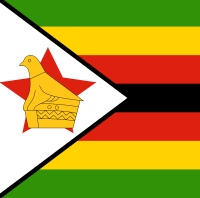
In more recent years, the Movement for Democratic Change (MDC) under the leadership of Morgan Tsvangirai has emerged as the only credible opposition to Zanu-PF, but it has been undermined by internal disagreements, instability, and the ruthless and sophisticated political manoeuvring of Mugabe.
Elections were held in March 2008. Tsvangirai and the MDC won more votes in both the presidential and parliamentary elections (although not the required majority) – despite significant efforts by the Mugabe regime to intimidate voters and rig the election outcome. A re-election ensued, which Tsvangirai did not contest due to personal intimidation, the electoral rigging and fears for the safety of MDC voters and party members - torture camps had been set up around the country by Zanu-PF. The evergreen Mugabe re-emerged as the President of Zimbabwe. The freshly elected leader with a self-awarded ‘degree in violence’ extolled such virtues in his victory speech: “ink and ballot paper will never defeat guns and bullets”.
Following the 2008 elections the two leaders engaged in discussions over a potential power sharing agreement, after considerable pressure from South Africa, particularly in light of the dubious, undemocratic outcomes of the election and the deteriorating humanitarian situation in the country.
A power sharing agreement was signed in September 2008 and an ‘Inclusive Government’ of Zanu-PF and MDC was subsequently formed, in February 2009. The extent to which power has actually been shared is debatable, with Mugabe retaining effective control of the military, the police and the Reserve Bank- the latter, consistent with most existing and past Kleptocracies across the globe, is a personal banking facility for the President. 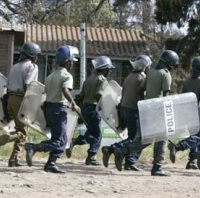
Morgan Tsvangirai took the first sip from a poisoned chalice on 11th February 2009 when he was sworn in as Prime Minister as part of this new Inclusive Government. The wheels were already in motion to discredit, undermine and eventually weaken beyond repair the MDC side of the Inclusive Government, prior to its inauguration.
When the Cabinet for the Inclusive Government was being sworn in, Mugabe announced a surprise additional number of Zanu-PF ministers to skew the balance of power even further in favour of his party. On the same day, MDC nominee Deputy Agriculture Minister, Roy Bennett, was arrested on terrorism and treason charges. A month later Tsvangirai was involved in a car accident in which his wife was killed and he was injured – despite the presence of two security vehicles, and the prominent human rights activist Jestina Mukoko, Director of the Zimbabwe Peace Project (ZPP), was put on trial and hospitalized due to injuries allegedly the result of police torture.
The ZPP documents human rights abuses. Mukoko first went missing in October 2008. She was kidnapped with around 40 other political and human rights activists less than a few weeks after the Tsvangirai /Mugabe power sharing agreement was signed.
According to senior diplomats working in Zimbabwe, a five man cabal consisting of military and intelligence chiefs, that resembles the old and much feared ‘Joint Operations Command’, is working around the clock on a strategy of abductions, arrests and disruption aimed at bringing an end to the Inclusive Government.
In March 2009, Mugabe announced at his 85th birthday celebrations that white Zimbabwean farmers will continue to be run off their farms – contradicting an earlier Mugabe/Tsvangirai agreement and a 2008 tribunal ruling by the SADC.
The irony of Mugabe celebrating his 85th birthday, having lived such a long and prosperous life, while the country he has presided over experiences the lowest life expectancy in the world is rich and deep.
The Dilemma
The prospect of the Inclusive Government in Zimbabwe is a perplexing one for the international community. The human rights organisations, including Amnesty International and Human Rights Watch, have been vocal, declaring that the Mugabe Government has violated the rights to shelter, food, freedom of movement and resistance, freedom of assembly and the protection of the law.
Governments have been watching and waiting for a change of Government in Zimbabwe before they would consider development cooperation with the country. The Inclusive Government, while at best a very second best, was hoped to give outside leaders ‘something to work with’, a mechanism for dialogue, negotiation and incentivisation for future reform. Under such a banner, Tsvangirai has been pleading for foreign intervention, assistance and funding for reform. 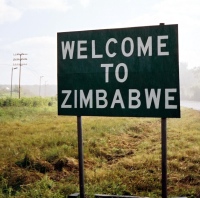
International donors are left with a complex challenge. How do you help half of a Government - the good half – and support its efforts to deliver reform to the people of Zimbabwe – without risking the diversion of hard-earned taxpayer dollars to elements of a regime that has blood on its hands? Is it fair or ethical to adopt a ‘wait and see’ approach – looking for evidence of reform in human rights and governance before letting funds flow – thereby handicapping prospects for resurrecting the economy? Some recent signs of progress are heartening. The rate of inflation in Zimbabwe dropped in January 2009, for the first time in many years, after retailers were allowed to trade goods for foreign currency. Inflation subsequently dropped 3 per cent each month in February and March. As mentioned, the annual rate of inflation has not been independently estimated since July of last year, when it stood at 231 million per cent.
The Australian Minister for Foreign Affairs has said that Australia should re-commence engagement with and assistance to Zimbabwe. This statement shows Australia is acting ahead of its peers, and could be a step in the right direction.
What led to the disaster? How did they get away with it? What can be done? Continued in May…
ENDNOTES:
[i] Coltart, D., 2008. A Decade of Suffering in Zimbabwe. Cato Institute, Centre for Global Liberty and Prosperity, Washington D.C. Development Policy Analysis series, No. 5, 24th March 2008.
[ii] This refers largely to events resulting from the pre Inclusive Zanu-PF Government, not the new Inclusive Government
[iii] World Health Organisation, 2009. Note that these figures were increasing as this article was written
[iv] Source: Bloomberg
[v] Keynes, J.M., 1919. The Economic Consequences of the Peace
[vi] Coltart, D., 2008. A Decade of Suffering in Zimbabwe. Cato Institute, Centre for Global Liberty and Prosperity, Washington D.C. Development Policy Analysis series, No. 5, 24th March 2008.
[vii] Ibid.
